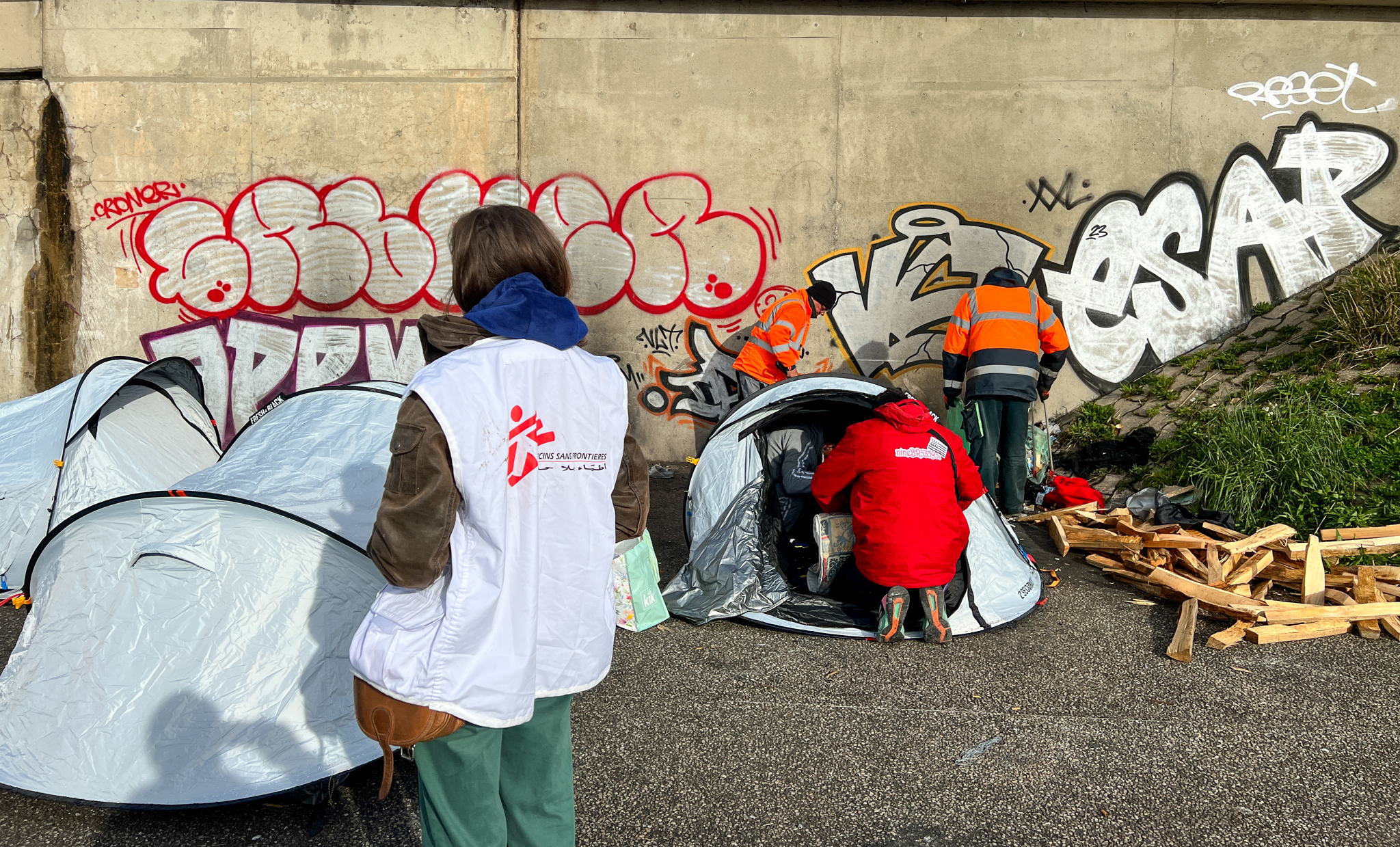MSF to provide medical and psychological assistance at UK-France border
International medical organisation Médecins Sans Frontières/Doctors Without Borders (MSF) has launched activities in Calais, northern France to provide people seeking safety with medical and mental healthcare.
MSF aims to provide assistance to hundreds of migrants, refugees and people seeking asylum who are currently living in Calais. They are facing not only a lack of provision of healthcare by the French Government, but also the consequences of inhumane policies implemented by both France and the UK, which focus on deterrence, securitisation, militarisation and enforcement.
The British Government has shut down safe routes to the UK, forcing people seeking safety into dangerous journeys across the Channel. The UK also supports and funds the French Government’s hostile approach towards refugees, migrants and asylum seekers in Northern France – which sees people forcibly, sometimes violently, moved on by the police and their belongings, including tents and sleeping bags destroyed or confiscated; and the criminalisation and obstruction of organisations which seek to provide humanitarian assistance. Between 400 and 600 migrants, refugees and asylum seekers are currently living in Calais. They face a lack of support from authorities, isolation from local communities, and language barriers with healthcare service providers. This is particularly devastating considering most of this population will have suffered violence and/or psychological trauma on their migration journeys.
"Systematic evacuations by the police, sometimes enforced using violence, the confiscation of personal belongings, marginalisation, obstacles imposed by the authorities and targeting of volunteer organisations have all led to an increasingly precarious situation for people on the move and have contributed to the deterioration of their health status," says Pauline Joyau, MSF project coordinator in Calais.
To help meet the health needs of migrants, refugees, and asylum seekers, and to help them overcome obstacles to accessing healthcare, MSF visits the informal settlements where they are dispersed. Team members raise awareness of mental health issues, identify the most vulnerable cases through psychosocial activities and refer them to free medical centres (Permanence d'accès aux soins) or to hospital, in a cooperative approach with public health providers.
In the first round of consultations, the most frequent medical conditions were respiratory problems, linked to exposure to the cold and lack of treatment for infections, as well as pain from injuries received falling from lorries while attempting to cross the English Channel. The MSF team also provided care to people who had suffered physical violence on their journey and people who had gone through traumatic experiences, such as surviving shipwrecks in the Channel.
The systematic reduction of safe routes to the UK only increases the number of tragedies on this border. Those who want to leave France and seek asylum in Britain have no choice but to risk their lives crossing the Channel due to the total lack of alternative pathways. They already face criminalisation and, if the UK Government’s Illegal Migration Bill passes, will be punished even more harshly, forced into perpetual legal limbo and indefinite detention with the constant prospect of removal hanging over them. This will undoubtedly compound the mental suffering and trauma that most have already suffered in France, on their migration journeys and in the countries they fled from.
According to the Observatoire des migrants morts à Calais, more than 350 people lost their lives in France, Belgium, the UK or at sea while trying to reach England between 1999 and 2023. Thousands more live with physical and psychological injuries as a result of French and British governments’ policies.
The MSF team in Calais works with volunteer organisations that have been operating in the area for a long time. "It is thanks to them and to the generosity of supportive citizens that migrants are able to meet their basic needs,” says Joyau. “However, the obstruction of the work of volunteer organisations has increased and, despite complaints and legal appeals, the practices of the police and local authorities have not changed."
ENDS
.jpg)
.jpg)
.jpg)
.jpg)
.jpg)